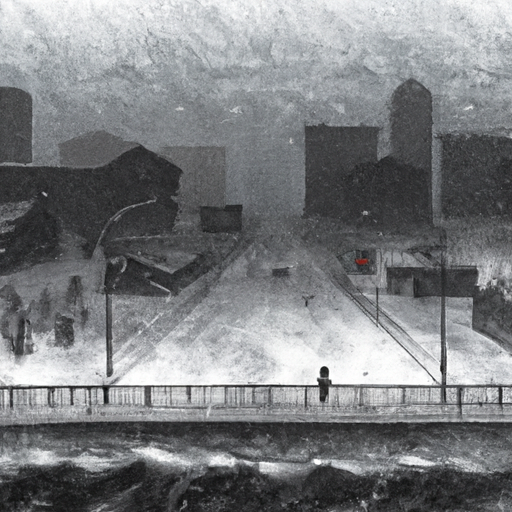The Rising Opioid Crisis in Northern Ontario: A Urgent Call to Action
The Canadian opioid crisis, a national health disaster that continues to escalate, has recently been refocused on Northern Ontario. Reports from the Porcupine Health Unit announced a surge in suspected opioid overdoses in the area. This is a concerning uptick that demands immediate attention and concerted action.
Facts and Figures
The opioid crisis in Northern Ontario mirrors the national trend of rising opioid overdoses. According to new data released by the health unit, there has been a dramatic surge in the number of suspected opioid overdoses, underscoring the urgency of the problem. The Porcupine Health Unit reported an alarming number of cases that is significantly higher than their weekly average, indicating a significant increase in the local opioid crisis.
The Wider Impact of the Opioid Crisis
This surge in opioid overdoses resonates far beyond the victims and their families. The opioid crisis significantly impacts multiple sectors such as healthcare, law enforcement, and social services. Our society as a whole suffers, as addiction fuels a vicious cycle of crime and homelessness.
Healthcare systems are overwhelmed dealing with the impacts of opioid addiction and overdoses, including the administration of lifesaving treatments such as Naloxone. Law enforcement agencies grapple with the associated increase in crime rates, as people affected by addiction may resort to desperate measures to feed their addiction. Finally, social services face increasing pressure as increasing numbers of victims find themselves homeless, disconnected from supportive networks, and often with concurrent mental health issues.
Action and Efforts to Combat the Crisis
Despite the grim picture, there are steadfast efforts to mitigate this crisis. Local healthcare units are engaging with frontline healthcare workers and first responders to manage and reverse drug overdoses. Naloxone, the medication used to block the effects of opioids, is being widely distributed.
Raising awareness about the severity of the opioid crisis and educating the public about the risks and harms associated with opioid use form a crucial part of the strategy. The Porcupine Health Unit is urging everyone to learn the signs of an opioid overdose and take an active part in combatting this widespread issue.
Key Points
- The Porcupine Health Unit reported an alarming increase in suspected opioid overdoses.
- The opioid crisis in Northern Ontario reflects the broader national crisis.
- Healthcare, law enforcement, and social services are grappling with the effects of this crisis.
- Naloxone, a lifesaving treatment, is being widely used to manage and reverse overdoses.
- Raising awareness and educating the public is a key effort in combatting the opioid crisis.
In Conclusion
While the surge in suspected overdoses in Northern Ontario underscores the tragic reality of the opioid crisis, efforts continue at local and national levels to combat this serious health crisis. The systematic effects this crisis has on healthcare, law enforcement, and social services cannot be understated. However, with collective, concerted action comprised of prevention, treatment, harm reduction, and enforcement considerations, it is possible to mitigate the impact of this crisis.
Key to this continued effort is increased awareness and a deep understanding of the magnitude of the problem. The struggle against the opioid crisis will be long and demanding. But with dedication, resources, and a committed approach. we can begin to turn the tide. This is a collective fight that we must engage in together—for our communities, our neighbours, and ourselves.
The opioid crisis is not just a news story—it’s a public health emergency that is affecting real people in our communities. We all have a role to play in addressing it. Whether that’s supporting local health initiatives, advocating for policy changes, or simply raising awareness in our own circles, every action matters. Let’s acknowledge the severity of the situation and act decisively to protect our communities.
